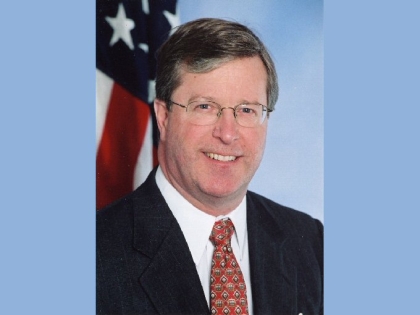
Senate Continues Effort To Advance Legislative Reform

Albany, N.Y.-- The New York State Senatehas unanimously approved legislation cosponsored by Senator George H. Winner, Jr. (R-C, Elmira) that would continue this year’s effort to reform New York’s legislative process by creating the Bipartisan Legislative Process Task Force.
Early in the 2005 session both houses of the Legislature have adopted a myriad of internal rules changes, including a ban on the widely criticized practice of so-called "empty seat" voting. A new Senate rule, for example, now requires members to be in their seats to vote on controversial legislation being debated in the Senate. The latest measure approved by the Senate, which has bipartisan support in both legislative houses, seeks to continue this year’s effort to make the state’s legislative process more accountable, open and responsive to citizens.
"This legislation encourages an ongoing dialogue on legislative reform. This bipartisan effort is important to continue to move forward," said Winner.
Winner said that the Legislative Process Task Force, if approved by the Assembly, will hold public hearings, solicit testimony, examine current processes, and make additional recommendations to reform the legislative process.
Recently theSenateapproved a comprehensive packageof additional rules reforms, including the ban on empty seat voting,that Winnersaid "changes the way the Senate does business."He believes the reforms will help make the legislative process more accountable, open and responsive to citizens.
"All of thesechanges represent a step forward in the spirit of government reform," Winner said.
The Senate reformsbegin to address most of the recommendations made by the Brennan Center for Justice. Reforms adopted by the Senate include changes to:
> limit individual committee assignments to seven, a move designed to allow members to become better versed in each committee and improve the working dynamics of the committee process;
> allow any member of a Senate committee to convene a public forum. Under prior Senate Rules, only committee chairs were empowered to convene a public hearing on legislation or policy issues;
> encourage legislative committees to increase the number of public hearings conducted by the committee, thereby providing increased opportunities for citizen comment and participation in the legislative process;
> encourage and expand the use of the Joint Conference Committee process, initiated by the Senate in 1995, to conduct public negotiations to settle differences over similar versions of legislation being considered by both houses of the Legislature;
> eliminate the ability of the Senate Majority Leader to "star" legislation. Under this practice, which has never been used by current Senate Majority Leader Joseph Bruno, a majority leader was allowed to unilaterally block floor action on any measure by "starring" the legislation, even after it had already moved through the committee process and onto the Senate floor; and
> double the time allowed for floor debates on legislation from two to four hours.
The Senate will also examine expanding the broadcast of Senate sessions to a wider audience through cable outlets statewide.



